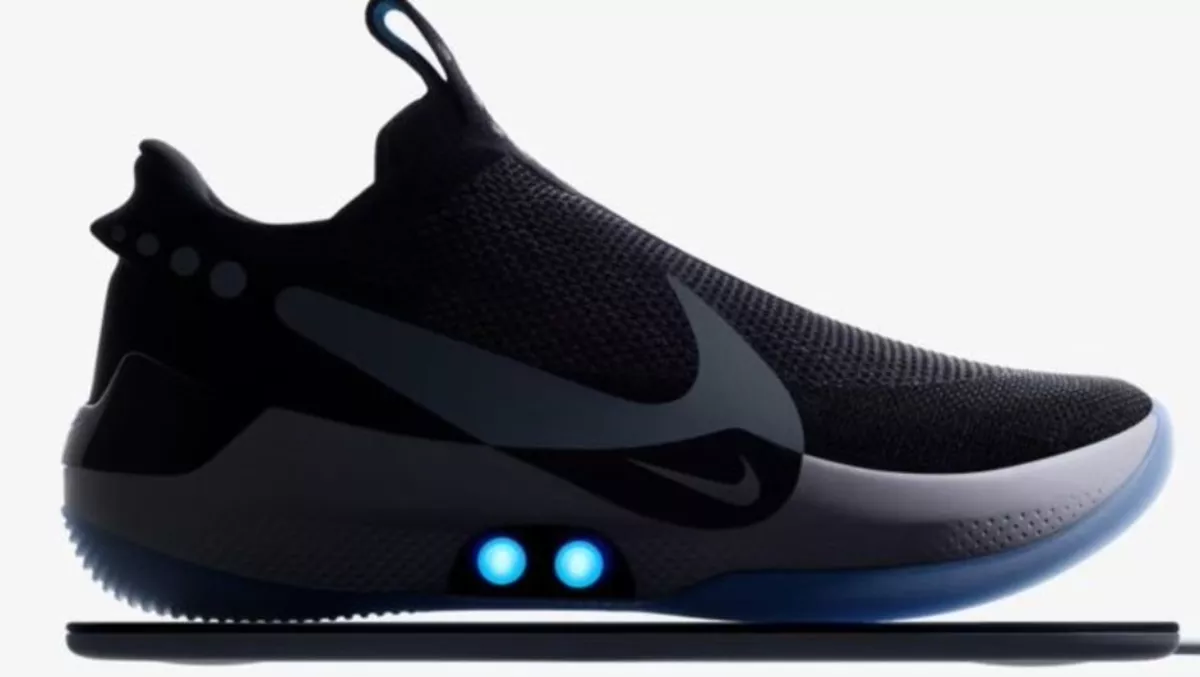
Can Nike change sport with smart, self-lacing shoes?
Nike has launched self-lacing trainers, which fit themselves to the shape of the foot and are controlled via a smartphone.
It is the latest iteration of the futuristic footwear, first referred to in the film Back to the Future Part II, and made reality by Nike in 2016.
The latest version, called Nike Adapt, will cost US$350 and will not require a physical button to activate the laces.
The launch event was hosted on live-streaming platform Twitch.
"We picked basketball as the first sport for Nike Adapt intentionally because of the demands that athletes put on their shoes," says Nike creative director of innovation Eric Avar.
"During a normal basketball game the athlete's foot changes and the ability to quickly change your fit by loosening your shoe to increase blood flow and then tighten again for performance is a key element that we believe will improve the athlete's experience."
Users can customise the fit and control it through a smartphone app which will store fit preferences.
They can input different fit settings for different moments in the game, loosening it for a timeout and tightening before they re-enter the game.
When they step into the shoe, a custom motor and gear will sense the tension needed by the foot and adjust accordingly.
The app will also store the data, which athletes can choose to share with Nike.
The shoe goes on sale in February.
"For a long time, we have predicted growth in smart footwear," says CSS Insight mobile analyst Ben Wood.
"It's a logical place to embed technology but the underlying incentive for shoemakers is that it offers the ability to get information on usage, performance and wear.
"As with any new technology category, there are going to be concerns about how consumer data will be used but the sorts of metrics Nike is able to capture are arguably of a lot less concern than other smart devices that are doing constant measurements on health such as heart rate."
However, not everyone is enthused by the idea of another connected device.
"The phone-controlled, self-lacing trainers are an example of unnecessary complication and increase in cost," says Mindtree senior vice president Guita Blake.
"Smart technology needs to be secure if the user is to benefit. Nobody wants to find out that their brand new expensive trainers just got hacked. Technology is crucial to the improvement of our lives and focus should instead be directed towards products and services that actually make our lives better, not more complicated and expensive.
Mindtree is a global technology consulting and services company.


